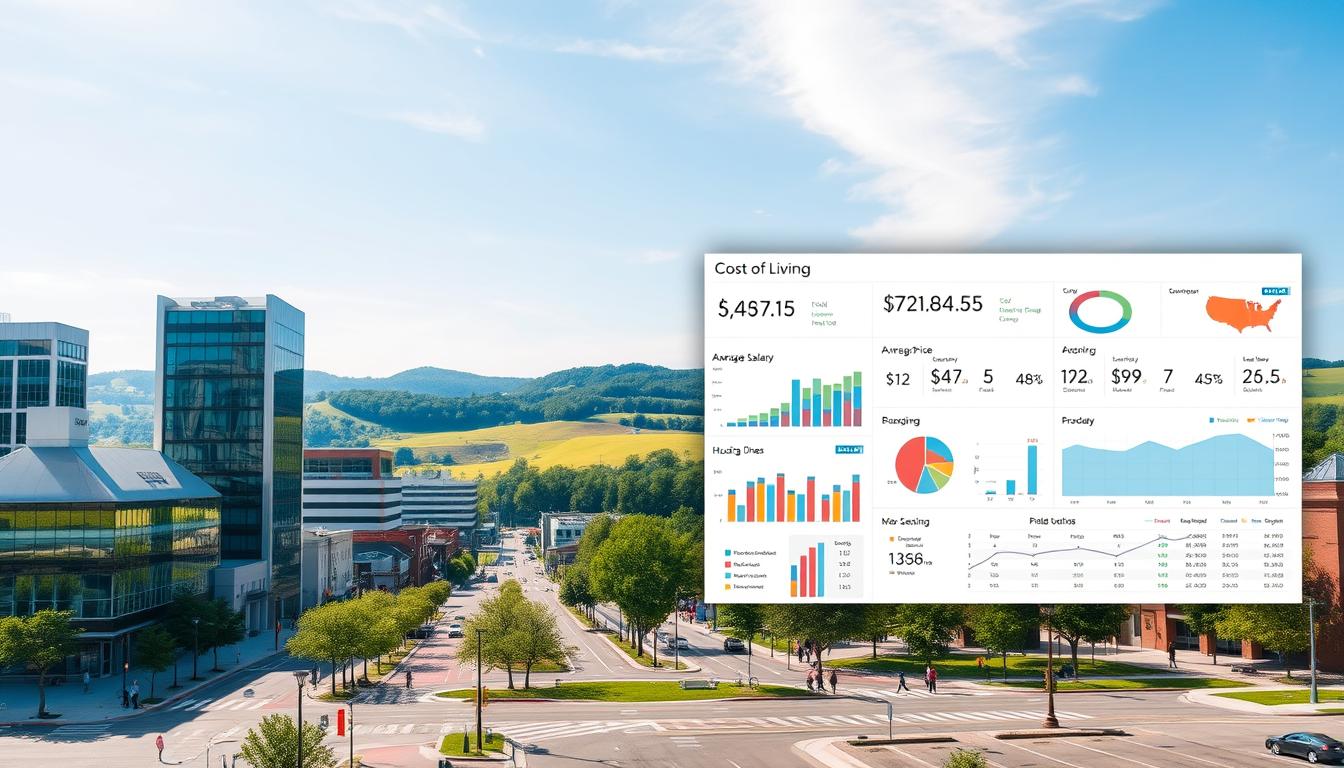So, you’ve got some college under your belt, but maybe you didn’t quite finish. That’s totally fine! Lots of people find themselves in this spot. The big question is, how do you put that on your resume without it looking weird or like you didn’t follow through? It’s all about being smart with how you show what you’ve done. This article will walk you through How to List an Unfinished Degree on Your Resume, making sure you highlight your strengths and what you learned, even if you didn’t get that diploma.
Key Takeaways
- Only include an unfinished degree if it makes sense for the job you want or if you did a lot of work there.
- Put your unfinished degree in the education part of your resume, but be clear that it’s not a completed degree.
- Talk about specific classes or projects that show off skills useful for the job.
- If an employer asks, explain why you left the program in a short, positive way.
- Remember, even an unfinished degree can show you have good skills like problem-solving or research.
Understanding When to Include an Unfinished Degree

Deciding whether to include an unfinished degree on your resume can be tricky. It really depends on the situation. You want to present yourself in the best light, but also be honest. RoboApply can help you tailor your resume to each job, making this decision easier.
Relevance to the Job Application
If the degree program is directly related to the job you’re applying for, it’s usually a good idea to include it. Even if you didn’t finish, the coursework you completed could be valuable to the employer. Think about it: if you’re applying for a marketing job and you studied marketing for two years, that’s relevant experience, even without the degree. If the degree is in an unrelated field, like philosophy for a software engineering role, it might be less important to include. Make sure to highlight relevant coursework to showcase your skills.
Significant Coursework Completed
Consider how much of the degree you actually finished. If you only took a few introductory classes, it might not be worth mentioning. But if you completed a significant portion of the program, like 75% or more, definitely include it. This shows you have a solid foundation in the subject area. For example, if you were close to finishing a nursing degree but had to stop for personal reasons, listing the completed clinical rotations and advanced coursework can still impress a healthcare employer.
Recent Enrollment Status
How recently were you enrolled in the program? If it was within the last year or two, it’s more relevant than if it was ten years ago. Recent coursework shows you have current knowledge and skills. If you’re actively looking to return to school to finish the degree, mentioning this can also be a plus. Always be truthful about your academic status on your resume.
Including an unfinished degree can be a strategic move if you frame it correctly. Focus on the skills and knowledge you gained, and be prepared to explain why you didn’t complete the program. Honesty and a positive attitude are key.
Formatting Your Unfinished Degree on a Resume
Placement Within the Education Section
When you’re putting together your resume, think about where your unfinished degree fits best. Usually, the education section comes after your experience section, especially if you’ve got some solid work history. But, if the degree is super relevant to the job you want, or you’re just starting out in your career, you might want to bump it up higher. The key is to make sure it’s easy for the person reading your resume to find the information they need quickly. RoboApply can help you experiment with different resume layouts to see what highlights your strengths best.
Clear and Concise Phrasing
Don’t beat around the bush. Be straight up about the fact that you didn’t finish the degree. Use phrases like “Incomplete,” “Some coursework completed,” or “Studies in [Major]” to show where you’re at. For example:
Bachelor of Science in Computer Science (Incomplete)
University of Example, City, State
2020 – 2022
Or:
Studies in Marketing
Community College, City, State
2021 – 2023
Keep it simple and to the point. You can also use RoboApply to check for clarity and conciseness in your phrasing.
Avoiding Misleading Information
This is super important: don’t try to make it sound like you finished the degree if you didn’t. It’s not worth it. Employers can easily check, and it’ll make you look bad. Instead, focus on what you did accomplish. Did you complete a bunch of relevant coursework? Did you learn some cool skills? Highlight those things! For example, instead of saying you have a degree in marketing, say you have studies in marketing and then list the relevant coursework you completed.
Be honest about your enrollment dates. Don’t stretch the truth.
Don’t list the degree under certifications or licenses.
If you transferred, make sure to specify which school you attended and when.
RoboApply can help you ensure your resume is both honest and effective. It’s all about presenting yourself in the best light while staying truthful. Remember to tailor your resume to employer expectations to maximize its impact.
Highlighting Relevant Coursework and Achievements
Listing Key Courses Taken
So, you didn’t finish your degree, but that doesn’t mean you didn’t learn anything! Think about the courses you did complete. List the ones that directly relate to the job you’re applying for. It shows you have some foundational knowledge. For example, if you’re applying for a marketing role and took courses in consumer behavior, advertising, and market research, list those out. It’s all about making those connections for the hiring manager. RoboApply can help you identify keywords in job descriptions to match with your coursework.
Showcasing Academic Projects
Did you work on any cool projects during your studies? Don’t hide them! Academic projects can be a great way to demonstrate your skills, especially if you don’t have a ton of work experience yet. Maybe you built a website, conducted a research study, or designed a marketing campaign. Describe the project, your role, and the results you achieved. Even if the project wasn’t a smashing success, you can still talk about what you learned from the experience.
Mentioning Dean’s List or Honors
If you made the Dean’s List or received any academic honors, definitely include that information! It shows you were a high-achieving student, even if you didn’t finish the degree. It’s a quick way to demonstrate your academic abilities and work ethic. You can include it in the education section of your resume.
Don’t be afraid to highlight your academic achievements, even if you didn’t complete your degree. It shows you have the skills and knowledge to succeed in the role. Frame it positively and focus on what you learned and accomplished.
Explaining Your Departure from the Program
It’s a good idea to be ready to talk about why you didn’t finish your degree. Employers might ask, and having a solid, positive explanation can make a big difference. Don’t dwell on the negative; instead, focus on what you learned and how you’ve grown.
Brief and Professional Explanations
Keep your explanation short and to the point. Avoid going into too much detail or sounding negative. A simple, honest reason is usually best. For example, you could say you left to pursue a job opportunity or because of financial reasons.
Focusing on Positive Outcomes
Frame your departure in a positive light. What did you gain from the experience, even though you didn’t finish? Did you learn valuable skills, gain clarity about your career goals, or discover new interests? Make sure to highlight these positive aspects. For example, if you left to start a business, emphasize the entrepreneurial skills you developed. RoboApply can help you highlight relevant coursework and achievements, even if the degree wasn’t completed.
Addressing Potential Employer Concerns
Think about what an employer might worry about when they see an unfinished degree. Are they going to think you’re a quitter? Are they going to question your commitment? Address these concerns head-on. Explain how you’ve learned from the experience and how it’s made you a stronger candidate. For instance, you could say that leaving school taught you the importance of time management and prioritization, skills you now use in your current role. It’s also important to be honest about any employment gaps that resulted from leaving school. RoboApply can help you craft a professional cover letter that addresses these gaps effectively.
It’s okay to acknowledge that things didn’t go as planned. What matters is how you’ve grown and what you’ve learned from the experience. Focus on the future and how you can contribute to the company.
Leveraging Your Unfinished Degree for Skill Development
Connecting Coursework to Job Skills
It’s all about making connections. Think about the courses you took and how they relate to the job you want. Don’t just list the course titles; explain what you learned and how it can help you in the role. For example, if you took a statistics course, mention how you can use data analysis to improve decision-making. RoboApply can help you identify keywords from job descriptions and match them to your coursework.
Demonstrating Transferable Abilities
Even if your degree is unfinished, you’ve still gained valuable skills. Transferable skills are abilities that can be used in different jobs and industries. These might include communication, problem-solving, teamwork, and time management. Highlight these skills on your resume and provide examples of how you’ve used them in your coursework or extracurricular activities.
For example:
- Communication: Presented research findings to classmates.
- Problem-solving: Developed a solution to a complex coding problem.
- Teamwork: Collaborated with a group on a marketing project.
Highlighting Practical Application
Employers want to see that you can apply what you’ve learned. Focus on projects, assignments, or experiences where you put your knowledge into practice. This could include case studies, simulations, or volunteer work. Quantify your achievements whenever possible to show the impact of your work. For instance, instead of saying “Managed social media accounts,” say “Increased social media engagement by 20% in three months.” You can use resume skills to highlight your practical application of knowledge.
Think about your unfinished degree as a foundation. Even though you didn’t complete the entire building, you still have a solid base to build upon. Focus on the skills and knowledge you gained and how they can benefit your future employer. A strong resume summary can help you frame your experience positively.
Strategies for Different Levels of Completion
It’s important to tailor how you present your unfinished degree based on how far you got in the program. Someone who completed only a semester will approach it differently than someone who was a year away from graduating. Let’s break down some strategies.
Early Stage Program Inclusion
If you only completed a short amount of coursework, you might wonder if it’s even worth including. Generally, if you’ve only taken a course or two, it’s best to leave it off unless the coursework is directly relevant to the job. If it is relevant, you can include it, but be very clear about your enrollment status.
- List the school and program.
- Indicate the dates of attendance.
- Highlight any relevant skills or knowledge gained.
For example:
“[University Name], Bachelor of Science in Computer Science, Attended: August 2024 – December 2024”
Near Completion Scenarios
If you were close to finishing your degree, it’s almost always a good idea to include it. Emphasize the coursework you did complete and any skills you gained. You can also mention your expected graduation date, even if it’s in the past, and briefly explain why you didn’t finish. RoboApply can help you tailor your resume to highlight the most relevant skills from your near-completed degree.
- List the degree as “Bachelor of Arts in English (Incomplete)”.
- Include your expected graduation date (even if it passed).
- List relevant coursework, especially if it aligns with the job description.
For example:
“[University Name], Bachelor of Arts in English (Incomplete), Expected Graduation: May 2024. Relevant Coursework: Creative Writing, Rhetoric, Literary Analysis”
Long-Term Enrollment Gaps
If it’s been a while since you were enrolled, you need to think carefully about whether to include the degree. If the program is outdated or irrelevant to your current career goals, it might be best to leave it off. However, if the skills you gained are still valuable, you can include it, but be prepared to explain the gap in your education. Consider how high school graduates can create successful applications even with limited experience.
- Assess the relevance of the coursework to your current career.
- Be prepared to explain the gap in your education during an interview.
- Focus on the skills and knowledge you gained, rather than the lack of a degree.
When addressing long-term enrollment gaps, it’s important to be honest and upfront with potential employers. Frame your explanation in a positive light, focusing on what you learned from the experience and how it has shaped your career goals. If you’re applying for entry-level software engineer positions, highlight any coding skills or projects you completed during your studies, even if the degree wasn’t finished. Remember to always present yourself as a motivated and capable candidate, regardless of your educational background.
Crafting an Effective Education Section
Standard Education Section Components
Your education section is a staple on any resume, even with an unfinished degree. It usually includes the name of the institution, its location, the degree you pursued, and your dates of attendance. If you completed the degree, you’d also list the graduation date. But since we’re talking about unfinished degrees, you’ll want to specify the period you attended.
Integrating Unfinished Degrees Seamlessly
The key is clarity. Don’t try to hide the fact that you didn’t finish, but don’t make it the focal point either. List the school, the degree you were pursuing, and the dates you attended. You can add a brief note like “Coursework Completed” or “Studies in [Major]” to show what you accomplished. For example:
University of Example, Anytown, USA
Bachelor of Science in Computer Science, 2020-2022
Coursework Completed
Prioritizing Relevant Information
Think about what’s most important for the job you’re applying for. If you took specific courses that directly relate to the job description, highlight those. If your GPA was high, include it. If you were involved in any relevant projects or extracurriculars, mention those too. The goal is to show that your time in school wasn’t wasted and that you gained valuable skills. RoboApply can help you tailor your education section to match specific job requirements, ensuring that the most relevant information is always front and center.
Remember, the education section is about more than just listing schools. It’s about showcasing your academic background in a way that highlights your strengths and relevance to the job. Be honest, be clear, and focus on what you did accomplish.
It’s also important to avoid misleading resume phrases. For example, don’t say “Major: Finance” if you didn’t graduate. Instead, say “Studies in Finance” or “Coursework in Finance”.
Consider the resume order of your sections. If your education is more relevant than your work experience, place it higher on the page. This helps hiring managers quickly grasp your background and qualifications.
Addressing Unfinished Degrees in Cover Letters

Expanding on Your Educational Journey
Your cover letter is a great place to add context to your resume, especially when it comes to an unfinished degree. Don’t just repeat what’s on your resume; instead, tell a story. Explain why you chose that program, what you learned, and how those experiences have shaped your career goals. Think of it as an opportunity to show your personality and thought process. For example, you might say something like, “While I didn’t complete my degree in Mechanical Engineering at State University, the coursework I completed provided me with a solid foundation in thermodynamics and fluid mechanics, which I’ve successfully applied in my previous role at Acme Corp.”
Connecting Education to Career Goals
Make the link between your education, even if unfinished, and your career aspirations crystal clear. How did the skills and knowledge you gained during your studies prepare you for the job you’re applying for? This is where you can really sell yourself. Use specific examples to illustrate your points. For instance, if you’re applying for a marketing position, you could mention how your coursework in psychology gave you insights into consumer behavior. RoboApply can help you tailor your cover letter to highlight these connections effectively. You can say something like, “My studies in psychology at City College, though incomplete, provided me with a strong understanding of consumer behavior, which I believe would be invaluable in this marketing role.”
Reinforcing Your Commitment
Use your cover letter to show that you’re dedicated to learning and growing, even if your educational path wasn’t perfectly linear. Talk about any steps you’ve taken to continue your education or develop your skills since leaving the program. This could include online courses, workshops, or professional certifications. It shows that you’re proactive and committed to your career.
- Mention any relevant projects or experiences you’ve had since leaving the program.
- Highlight any skills you’ve gained through self-study or on-the-job training.
- Express your enthusiasm for continued learning and professional development.
It’s important to frame your unfinished degree as a stepping stone rather than a setback. Focus on the positive aspects of your educational experience and how it has contributed to your overall growth and development. Show that you’ve learned from the experience and are ready to move forward with confidence.
Here’s an example of how you might phrase it: “Although I chose to pursue other opportunities before completing my degree, I continued to expand my knowledge through relevant coursework and practical experience, which has prepared me well for this role.”
Interviewing with an Unfinished Degree

Preparing to Discuss Your Education
Okay, so you’ve got an interview lined up. Awesome! But now you’re sweating about that unfinished degree. Don’t panic. Preparation is key. Think about how you’ll address it before you’re sitting in the hot seat. Rehearse your explanation so it sounds natural and confident, not defensive or apologetic.
- Know your story inside and out.
- Anticipate potential questions.
- Practice your responses.
Framing Your Experience Positively
It’s all about perspective. Instead of viewing your unfinished degree as a failure, frame it as a stepping stone. What did you learn? How did it shape your career path? What skills did you gain that are relevant to the job? Use positive language and focus on what you did accomplish. For example, you can use RoboApply to showcase your complete profile and the value you bring to the hiring company.
Focus on the skills and knowledge you gained during your studies. Highlight any projects, research, or coursework that directly relate to the job requirements. This shows the interviewer that you still benefited from your education, even if you didn’t complete the degree.
Turning Challenges into Strengths
Life happens. Maybe you had to leave school for financial reasons, family obligations, or a change in career goals. Be honest (but not too honest) about the reason. Then, pivot to how you overcame that challenge and what you learned from it. Did you develop resilience, problem-solving skills, or a stronger sense of self? Turn that negative into a positive. When addressing a lack of a degree in an interview, be confident and positive.
- Showcase your adaptability.
- Emphasize your problem-solving abilities.
- Demonstrate your commitment to growth.
For nursing students, even with limited work experience, it’s important to highlight clinical hours and patient care. This is similar to how you can showcase crucial nursing skills like communication and critical thinking, even if you didn’t finish your degree.
When to Omit an Unfinished Degree

Sometimes, leaving an unfinished degree off your resume is the best move. It really depends on the situation. You don’t want to include something that could hurt your chances of landing an interview. RoboApply can help you tailor your resume to each job, making these decisions easier.
Irrelevant or Outdated Programs
If the degree program has absolutely nothing to do with the job you’re applying for, it’s probably best to leave it off. Including irrelevant information can clutter your resume and distract from your more relevant qualifications. For example, if you started a degree in music but are now applying for a software engineering position, that music degree might not be worth mentioning. It’s all about keeping things focused.
Minimal Coursework Completed
If you only took a class or two before dropping out, it’s generally not worth including. There’s just not enough substance there to make it meaningful. It’s better to focus on experiences and skills that you do have. Think of it this way: would you list a hobby you tried once? Probably not. Similarly, a tiny bit of coursework doesn’t add much value. You can always mention relevant coursework in your cover letter if it’s truly important.
Focusing on Professional Experience
In some cases, your professional experience might simply outweigh the need to mention an unfinished degree. This is especially true if you’ve been working in the field for several years and have a strong track record of success. Employers are often more interested in what you’ve done than what you started but didn’t finish. Consider this:
If you have extensive work experience that directly relates to the job, prioritize that. An unfinished degree from years ago might not be as compelling as your recent accomplishments and skills. Think about what tells the best story about your capabilities.
Here’s a simple guide:
| Scenario | Recommendation |
|---|
Deciding whether to include an unfinished degree on your resume can be tricky. It really depends on your unique situation and what job you’re aiming for. Sometimes, it’s better to leave it off, especially if it doesn’t help your job search. To figure out what’s best for you, check out our full guide on our website.
Wrapping It Up
So, there you have it. Putting an unfinished degree on your resume doesn’t have to be a big mystery. It’s all about being clear and showing what you did learn. Think about what skills you picked up and how those connect to the job you want. Don’t try to hide anything, but also don’t make it sound like you finished something you didn’t. Just be honest, show your progress, and explain why it matters for the role. You’ve got this.
Frequently Asked Questions
Should I always put my unfinished degree on my resume?
It’s a good idea if the classes you took are related to the job you want. For example, if you took computer science classes and are applying for a tech job, definitely include it. If it’s not really connected, it might be better to leave it off or just mention the skills you gained.
Where on my resume does an unfinished degree go?
You can put it in the education part of your resume. Just list the school, what you were studying, and the years you attended. You can also say something like “Coursework in [Your Major]” or “Attended [University Name] for [Number] years.”
Do I need to explain why I didn’t finish my degree?
No, you don’t need to apologize or make excuses. Just state the facts clearly and briefly. If an employer asks, you can explain it simply, focusing on what you learned and how it helped you grow.
Can I still talk about my coursework and projects?
Yes! Even if you didn’t finish, you probably learned a lot. Think about specific projects you worked on, important classes you took, or any special skills you picked up, like coding or public speaking. These can show employers what you’re capable of.
Should I include good grades or honors?
If you were on the Dean’s List or got good grades in certain classes, absolutely mention it! It shows you’re a hard worker and can do well in academic settings.
How do I bring up my unfinished degree in a cover letter?
In your cover letter, you can briefly mention your time in college and how it helped you learn things that are useful for the job. It’s a chance to connect your past studies to your future career goals.
What if an interviewer asks about my unfinished degree?
Be ready to talk about it openly. Focus on the positive aspects, like the knowledge you gained or how it helped you figure out what you really want to do. Show them that even though you didn’t finish, you’re still a strong candidate.
When is it better to leave an unfinished degree off my resume?
If the degree isn’t related to the job at all, or if you only took a few classes a long time ago, it might be better to leave it off. Your resume space is valuable, so use it to highlight the most relevant experiences.


















